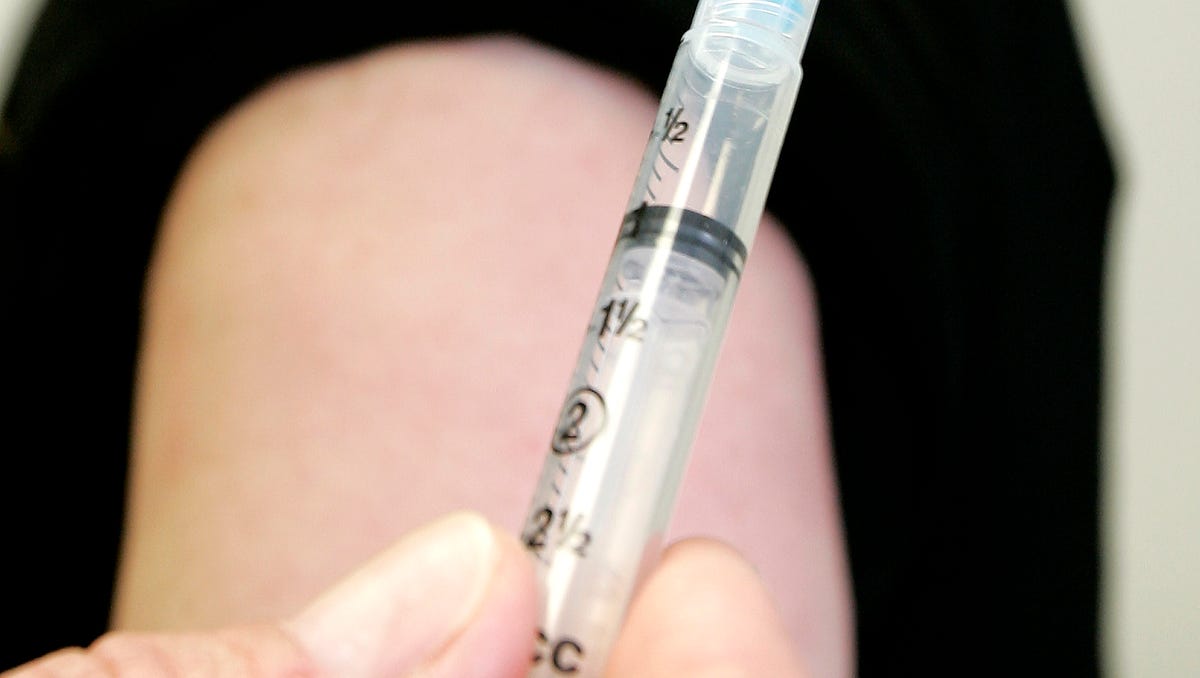
OK doctors like us know vaccines don’t cause autism
Almost nothing illustrates the transformative power of vaccination better than the 1955 arrival of Jonas Salk’s polio vaccine.
| Guest columnists
The goal of medical science is to improve our quality of life. In the past century, relatively few things have more fully demonstrated this goal than the antiviral and antibacterial vaccines that have protected our most vulnerable populations. The World Health Organization (WHO) estimates that in the last 50 years, immunizations have saved the lives of over 150 million children.
Almost nothing illustrates the transformative power of vaccination better than the 1955 arrival of Jonas Salk’s polio vaccine. No longer was American society helpless before a seasonal plague of paralysis that claimed 15 to 20 thousand victims annually. Polio vaccines were followed by measles vaccines and then mumps, German measles and varicella vaccines. The scope of this blessing has continued to expand with immunizations for pneumococcus, meningococcus, rotavirus and other infectious diseases.
And while these childhood vaccines have been overwhelming successes, society has forgotten the tragedies of past diseases and instead embraced new fears that threaten all the progress we’ve made. One of these fears is the unsupported link between vaccination and autism.
It’s understandable that the increasing number of cases of childhood autism, whether enhanced by more vigilance or expanded definitions, has begged for an explanation. Unfortunately, this desire for an answer has spawned some poorly executed medical studies. Notorious among these articles was the February 1998 paper published by Dr. Andrew Wakefield in The Lancet.
Upon scrutiny, it was revealed that Dr. Wakefield had conflicts of interest that included serving as a clearing house for plaintiff attorneys while promoting his own alternative vaccine and manipulating the data to obtain the conclusions he desired. The Lancet later retracted the article, and Dr. Wakefield lost his medical license ― though not before lasting damage was done. In fact, despite 24 studies refuting the association between vaccines and autism, some individuals continue to embrace skepticism.
The net result of this unfortunate tide of mistrust is that vaccination rates have begun to fall dramatically in some areas of the US, resulting in a loss of herd immunity. If measles resurrects itself through flagging vaccination rates, other afflictions from our past are sure to follow. It is only a matter of time before polio, mumps and other vaccine-preventable infections find their footing.
While it is hard to predict exact numbers, it is easy to conclude that each case of serious illness or death from a preventable disease is a tragedy. The truth is that vaccines are safe, and the legitimate questions about vaccine-related autism or other harms can be answered.
The truth is, public health is a team sport. If we can’t play according to specific rules, loss is inevitable in what is anything but a game. Nevertheless, to win, we have to contain the disease. Even though many vaccines protect at rates greater than 90%, protection is not perfect if the disease is widespread.
It will be difficult to change the minds of some. However, for those searching for the truth, the answers are available and as clear as good science can make them. The Oklahoma State Medical Association recommends that Oklahomans discuss any questions or concerns about vaccination with a pediatrician or other trusted physician. While there may be distrust of organizational expertise, it is our hope that faith in the doctor-patient relationship remains intact. The stakes couldn’t be higher.
Sumit Nanda, M.D., is a board-certified ophthalmologist with INTEGRIS Health in Oklahoma City. He is president of the Oklahoma State Medical Association. James Kirk, M.D., is an Oklahoma City-based infectious disease specialist with more than 40 years of expertise.
No Byline Policy
Editorial Guidelines
Corrections Policy
Source